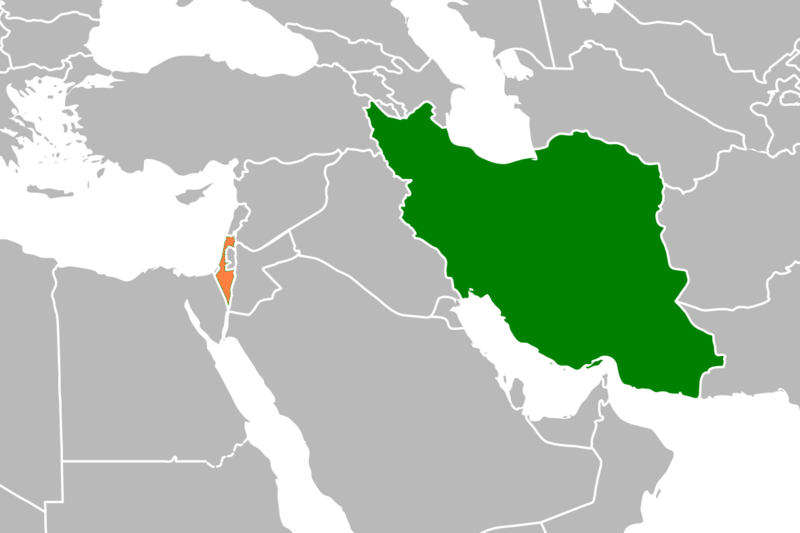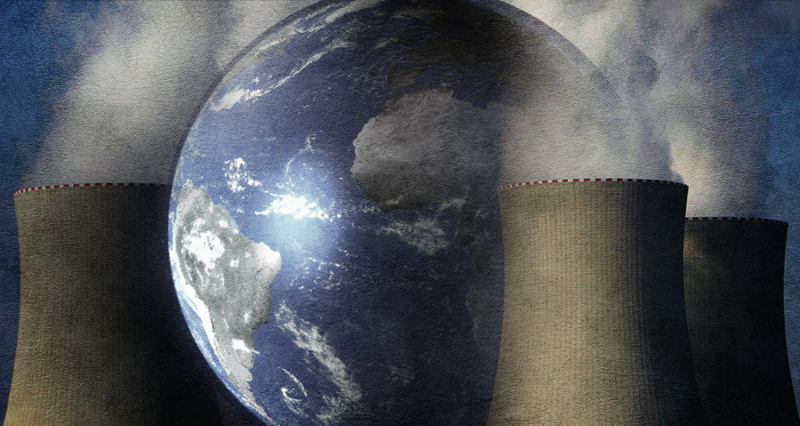Israel began the development of nuclear weapons at the end of the 50’s with French support. This became known thanks to an American U-2 spy plane that confirmed the presence of a nuclear station in the Dimona region, which made Israel the sixth country possessing nuclear weapons.
Before the discovery, Israel was asked to allow the IAEA to inspect the facilities, which it refused, saying it would only agree if the inspection was carried out by its ally, the US. The American investigators only inspected part of the facility, but nonetheless decided it was a waste of time and agreed to abandon the inspections. When the NPT was put into effect, Israel refused to sign, making it one of the 4 countries with nuclear weapons that does not abide by the important international agreement. Israeli access to nuclear development and the cooperation it received from Anglo-Americans and French constitutes a violation of the NPT.
In an article on the issue, the Council on Foreign Relations defends the fact that Israel did not sign the NPT and suggests that the country’s nuclear development is not in violation of the treaty anyway. It notes that Israel’s strategy in the international arena consists of giving ambiguous statements that neither confirm nor deny the possession of nuclear weapons to obtain advantageous margins in negotiations depending on the occasion.
Israel abides by a doctrine of “preventive attacks” under which it maintains its right to undermine the nuclear development of other countries in the region by force if necessary. An example of such a preventive attack is the one carried out in 1981 against an Iraqi nuclear reactor in Osarik, which continued years later after UN Security Council resolution to further dismantle Iraq’s nuclear capacity.
In the case of Iran, its nuclear program was also initiated at the end of the 50’s. However, Iran later did sign the NPT. After the revolution and the overthrow of Reza Pahleví, Iran undertook a more independent path in response to the international pressure it received from Washington and its allies who tried to prevent the country from purchasing nuclear development material, even pressing the IAEA not to provide assistance, which worked for some time. One of the few countries that maintained nuclear cooperative relations with Iran was Argentina, in spite of the international blockade… but even this was limited due to pressure from the United States. Later tensions increased further after the attacks on the Israeli embassy (1992) and the AMIA (1994).

Wikipedia
Between 2011 and 2013, a diplomatic crisis broke out between Iran and Israel which had serious international impact after Israel suggested the possibility of a preventive attack against nuclear facilities in the Islamic Republic. The IAEA would subsequently be informed that Iran may have acquired information necessary to manufacture nuclear explosive devices. This led to a series of negotiations involving the United Nations Security Council, which convinced Iran to abandon uranium enrichment for a period of six months. The negotiations were considered successful and further escalation and potential military action was circumvented.
In 2015, the JCPoA was signed, an important agreement that was well received by the international community… except for Israel. Israeli President Benjamin Netanyahu expressed his dissatisfaction on more than one occasion. saying that “Israel’s survival” is not negotiable.
This treaty secured Iran’s agreement to decrease its uranium enrichment in return for the end of the long-time economic blockade. However, Israel continued to exert international pressure and block Iranian energy development, eventually forcing the US to withdraw from the agreement under accusations that Iran was not complying with the regulations imposed, a claim that was contested by both the IAEA and the European Union. Not satisfied with their unfounded diplomatic destabilization, US President Donald Trump even began to threaten his own European allies with serious consequences if they continued to negotiate with Iran and refused to join the blockade he was imposing.
Israel regards Iran as an existential threat due to caustic statements by the Iranian authorities, and above all, due to their support for Hezbollah. Israel’s hostility towards Iran goes beyond the nuclear issue: it sees the Islamic Republic as a competitor in the fight for the domination of the Middle East against Saudi Arabia, Israel, and, by extension, the United States. It is one of the most populous countries in the region with a rich imperial historical past and the geographical conditions conducive to achieving regional power…
Iran has already achieved strong influence in the region. The fear that has resulted from Iran’s position has made the country an international scapegoat, a reputation maintained with half-truths. This information was further confirmed in Oliver Stone’s interview with Russian President Vladimir Putin, where the Russian leader confessed that former US Presidents Bill Clinton and George Bush had tried to convince him on numerous occasions that Iran was a nuclear threat.

















Leave a Reply